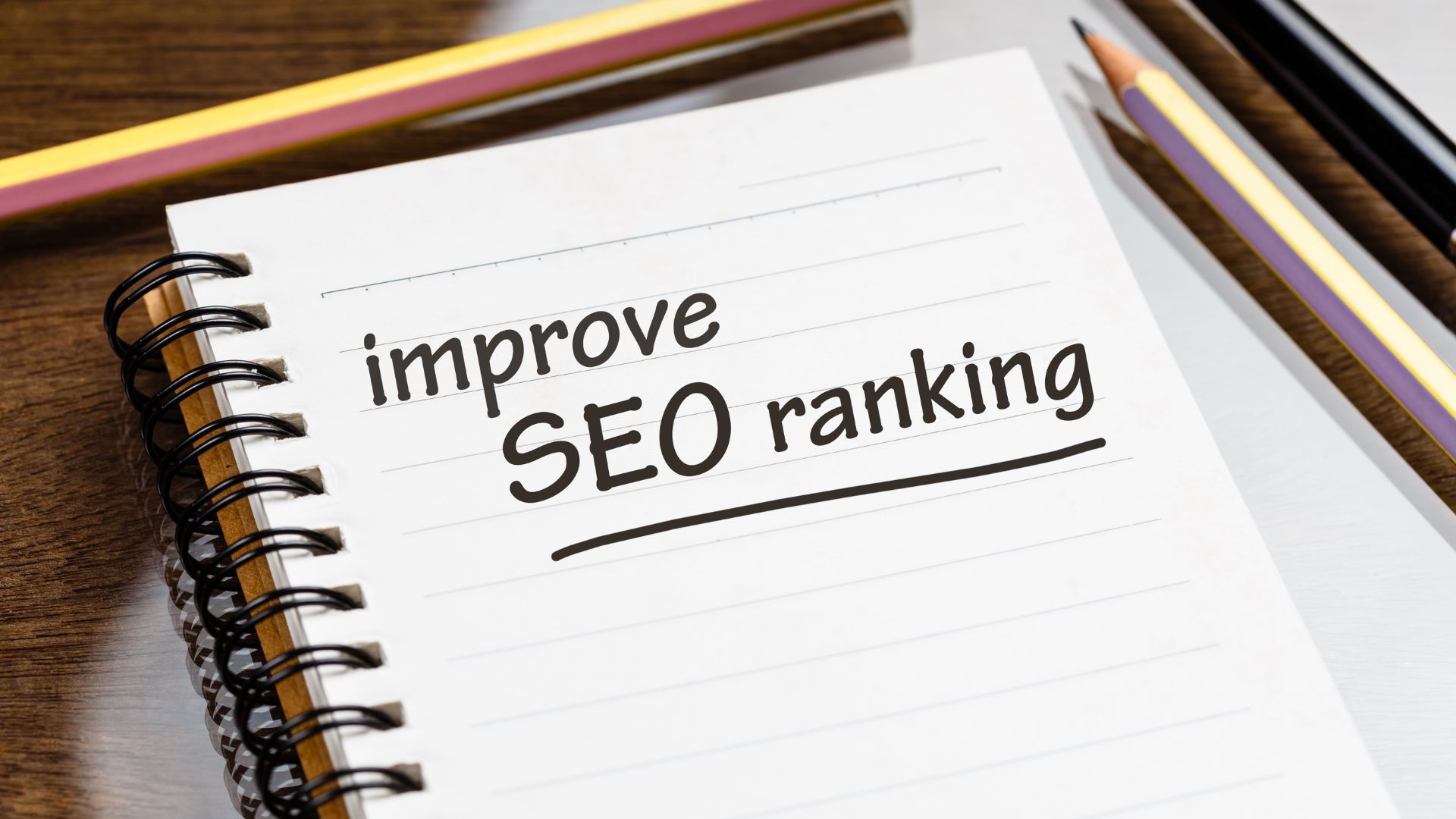SEO Secrets Revealed - Unlock the Google Rankings You Deserve
Mastering the art of Search Engine Optimization (SEO) is essential for anyone looking to enhance their online presence. This blog post delves into proven strategies and lesser-known tips that can elevate your website's visibility. From understanding keyword research to leveraging on-page and off-page optimization techniques, this guide aims to demystify the complexities of Google's ever-evolving algorithms.
Whether you're a small business owner, a content creator, or simply someone interested in improving their digital footprint, our insights provide actionable steps to optimize your content and secure the rankings that reflect your efforts. Join us as we explore the secrets to SEO success!
The Fundamentals of SEO: Understanding How Google Ranks Websites
In this section, we will break down the essential components that form the foundation of SEO, shedding light on the mechanisms that underlie Google's ranking system. Understanding these fundamentals is crucial for effectively optimizing your content and ensuring it meets the standards set by search engines.
What is SEO and Why is It Important?
SEO, or Search Engine Optimization, refers to a collection of practices designed to improve a website’s visibility in search engine results. A strong SEO strategy is vital for driving organic traffic, which can lead to higher conversions and business growth.

Key Ranking Factors
Google considers numerous factors when evaluating the relevance and quality of a webpage. In this section, we will examine some of the key determinants, including keyword usage, mobile-friendliness, site speed, and backlink quality, that influence your rankings.
The Role of Content Quality
High-quality content is at the heart of effective SEO. We will discuss why producing valuable, relevant, and engaging content is essential for connecting with your audience and satisfying search engine criteria.
Technical SEO Essentials
Beyond traditional practices, technical SEO plays a significant role in site performance. Here, we will explore important elements such as site architecture, secure connections, and XML sitemaps that contribute to a solid SEO foundation.
Staying Updated with Algorithm Changes
Google’s algorithms are constantly evolving, making it crucial for SEO practitioners to stay informed about updates and trends. We will provide insights on how to adapt your strategy to align with the latest changes in ranking criteria.
By the end of this overview, you will have a clearer understanding of the fundamental aspects of SEO and how they work together to improve your website's ranking on Google.
Keyword Research Strategies for Targeting the Right Audience
Effective keyword research is the cornerstone of any successful SEO strategy. By identifying the terms and phrases that your target audience is searching for, you can tailor your content to meet their needs and improve your visibility in search results. Here, we will explore some key strategies for conducting efficient keyword research.
Understanding Your Audience
Before diving into keyword tools, it’s crucial to understand who your target audience is and what their search intent entails. Consider factors such as demographics, preferences, and pain points. This understanding will help you identify relevant keywords that resonate with your audience.
Utilizing Keyword Research Tools
There are numerous tools available that can aid in uncovering potential keywords. Platforms like Google Keyword Planner, SEMrush, and Ahrefs allow users to explore search volume, competition, and related terms. Utilizing these tools can provide insights into which keywords are worth targeting for your content strategy.
Long-Tail Keywords
Focusing on long-tail keywords is an effective strategy for reaching a more specific audience. These phrases usually consist of three or more words and tend to have lower competition while catering to users with a clear intent. For example, instead of targeting “running shoes,” consider using “best running shoes for flat feet.” This not only attracts qualified traffic but also increases the likelihood of conversions.

Analyzing Competitor Keywords
Looking at what keywords your competitors are targeting can provide valuable insights. Tools like Moz and SpyFu let you analyze competitors’ websites, revealing keywords that drive traffic to their pages. This knowledge can inform your keyword strategy and help you find gaps in the market that you can exploit.
Monitoring and Adjusting Your Strategy
Keyword research is an ongoing process. As trends and user behavior change, regularly reassessing your keywords is necessary. Track the performance of your targeted keywords using analytics tools, and be prepared to adjust your strategy to maintain relevance within your niche.
By implementing these keyword research strategies, you can effectively target the right audience, enhancing your website's visibility and driving meaningful traffic.
Crafting High-Quality Content That Resonates with Both Users and Search Engines
Creating high-quality content is essential for successful SEO and plays a pivotal role in attracting and retaining your audience. When content resonates with users and is optimized for search engines, it enhances user experience and improves your website's ranking. Here, we’ll outline effective approaches to crafting content that meets both user needs and search engine criteria.
Understanding User Intent
To create content that resonates, it is vital to understand the intent behind your audience's search queries. User intent can be categorized into informational, navigational, transactional, and commercial investigation. By tailoring your content to satisfy specific intent, you ensure that it addresses the user’s needs directly, increasing engagement and satisfaction.
Creating Valuable and Engaging Content
Your content should provide value to your readers. This means offering insightful information, practical tips, or entertaining narratives that can keep users engaged. Crafting well-structured articles, utilizing headings and bullet points, and incorporating visual elements such as images, infographics, or videos can enhance readability and user experience.
Maintaining Originality and Authenticity
Original, authentic content not only engages your audience but also establishes your authority in the niche. Avoid duplicating existing content and strive to present unique perspectives or insights. Incorporating your personal experiences or expert opinions can further enhance the authenticity of your work.
Optimizing for SEO Without Compromising Quality
While creating user-centric content, incorporating SEO best practices is equally important. This involves strategically placing relevant keywords throughout your content without keyword stuffing. Additionally, optimizing meta titles, descriptions, headers, and internal linking can significantly impact how search engines perceive your content.
Encouraging Interaction and Feedback
Engaging your audience through calls-to-action (CTAs) can prompt discussions and interactions. Encourage readers to leave comments, ask questions, or share their experiences. User-generated content, such as comments and reviews, can further enhance authenticity and encourage a sense of community around your brand.
By focusing on these strategies, you can craft high-quality content that not only resonates with your audience but also aligns with search engine optimization efforts, ultimately improving your website's visibility and effectiveness.
The Importance of On-Page Optimization for Enhanced Visibility
On-page optimization plays a crucial role in enhancing your website's visibility and supports your overall SEO efforts. By optimizing individual pages on your site, you can improve user experience, make content more accessible to search engines, and ultimately drive more organic traffic.
Key Elements of On-Page Optimization
Several key elements constitute effective on-page optimization. This includes optimizing title tags, meta descriptions, header tags, and image alt texts. Each component should contain target keywords while ensuring they remain enticing and relevant to users. A well-crafted title tag and meta description can significantly affect click-through rates from search engine results pages.
URL Structure
An organized and descriptive URL structure not only helps search engines understand the content of your pages but also improves usability. Incorporating relevant keywords into your URLs can benefit both SEO and user experience. It's best to keep URLs concise and free of unnecessary parameters, making them easy to read and share.
Internal Linking
Internal links are essential for establishing a hierarchy within your website and guiding users to related content. This practice encourages longer site visits, provides additional context for search engines, and can help distribute page authority throughout your site. Be strategic with your internal linking to enhance navigation and improve overall visibility.
Mobile Optimization
With the majority of internet users accessing content via mobile devices, mobile optimization is no longer optional—it's essential. Ensuring that your site is responsive and provides a seamless experience across various devices can significantly enhance user satisfaction and reduce bounce rates, which positively impacts search rankings.
Page Speed
Page loading speed is a critical factor affecting user experience and search engine rankings. A site that loads quickly keeps users engaged and reduces the likelihood of them abandoning your page. Employ tools like Google PageSpeed Insights to assess your site's performance and identify areas for improvement.
By prioritizing on-page optimization, you can enhance your website’s visibility in search engines, improve user experience, and ultimately attract and retain a larger audience.
Leveraging Off-Page SEO Techniques to Build Authority and Trust
Off-page SEO focuses on activities conducted outside your website that impact your ranking within search engine results pages (SERPs). Successful off-page optimization strategies not only enhance your search visibility but also build your brand authority and trust among users.
Backlink Building
One of the primary components of off-page SEO is backlink building. Obtaining links from reputable, high-authority websites is essential for improving your site's perceived credibility. Strategies to acquire backlinks include guest blogging, collaborating with influencers, and offering valuable resources that others find worthwhile to reference. Consistently earning high-quality backlinks can significantly enhance your site's authority.
Social Media Engagement
Active engagement on social media platforms can amplify your content's reach and drive traffic back to your site. Sharing insights, interacting with your audience, and promoting your content through various social channels encourages user participation. Increased social signals—not just likes and shares but meaningful interactions—can influence how search engines perceive your content and enhance your credibility.
Online Reputation Management
Building and maintaining a positive online reputation is critical for fostering trust and authority. Actively manage your brand's online presence by responding to reviews, addressing customer feedback, and engaging in conversations about your industry. Platforms like Google My Business, Yelp, and industry-specific forums provide valuable opportunities to enhance your reputation and bolster your presence within your niche.
Content Marketing Beyond Your Site
Creating high-quality content that appears on other platforms or publications can position you as an authority in your field. Writing articles for industry-related websites, contributing to leading blogs, or participating in podcasts are effective methods to showcase your expertise. This approach not only generates backlinks but also broadens your audience base, enhancing brand visibility.
Influencer Collaborations
Partnering with influencers in your niche can provide significant leverage for off-page SEO. Influencers often have established trust and credibility with their audiences. Collaborating on content, endorsements, or product reviews can help you tap into their followers and gain visibility among potential customers, while also boosting your brand's authority.
By implementing these off-page SEO techniques, you can progressively build your site's authority and foster user trust, ultimately enhancing both your online visibility and your brand's credibility.

The Role of Backlinks in Boosting Your Website’s Credibility
Backlinks, also known as inbound links, are links from external websites that direct users to your site. They are one of the most critical factors in search engine algorithms, acting as a vote of confidence from one site to another. The quality and quantity of these backlinks can significantly influence your site's credibility and ranking.
Enhancing Domain Authority
Domain authority (DA) is a score that predicts how well a website will rank on search engine results pages. Backlinks from high-authority sites can massively enhance your domain authority. When reputable websites link to your content, search engines view this as a validation of your credibility and expertise, thus improving your ranking potential.
Driving Referral Traffic
In addition to boosting your site’s SEO metrics, backlinks serve as a direct pathway for referral traffic. When users click on a backlink leading to your site, it not only increases visitor numbers but also boosts engagement metrics such as time on page and interaction rates. This influx of genuine interest can further signal to search engines that your content is valuable.
Building Relationships and Networking
Acquiring backlinks often involves collaboration with other content creators, bloggers, or businesses in your niche. These relationships can open doors to new opportunities, including collaborations, guest posts, and shared audiences. By building a network, you can establish your credibility within your industry while also increasing your chances of securing high-quality backlinks.
Content Longevity and Evergreen Traffic
Quality backlinks contribute to the longevity of your content's visibility. As time passes, content that has gained numerous backlinks continues to rank well, thus attracting a steady stream of evergreen traffic. This sustained interest can lead to ongoing credibility as new visitors consistently discover your work and view your site as a reliable resource.
Backlinks play a vital role in enhancing your website’s credibility. By focusing on obtaining high-quality backlinks, you not only bolster your site’s authority and visibility in search engine results but also foster relationships that can further enrich your online presence. Prioritizing backlink strategy can lead to significant long-term rewards for your website's reputation.
Contact LevelUp Digital Solutions
Ready to elevate your online presence and enhance your website's credibility? At LevelUp Digital Solutions , we specialize in tailored SEO strategies that drive results. Whether you're looking to increase your backlinks, engage on social media, or manage your online reputation, our expert team is here to help. Don't leave your success to chance— contact us today to discover how we can assist you in achieving your digital marketing goals! Reach out via our website or give us a call, and let's take your brand to the next level!



















